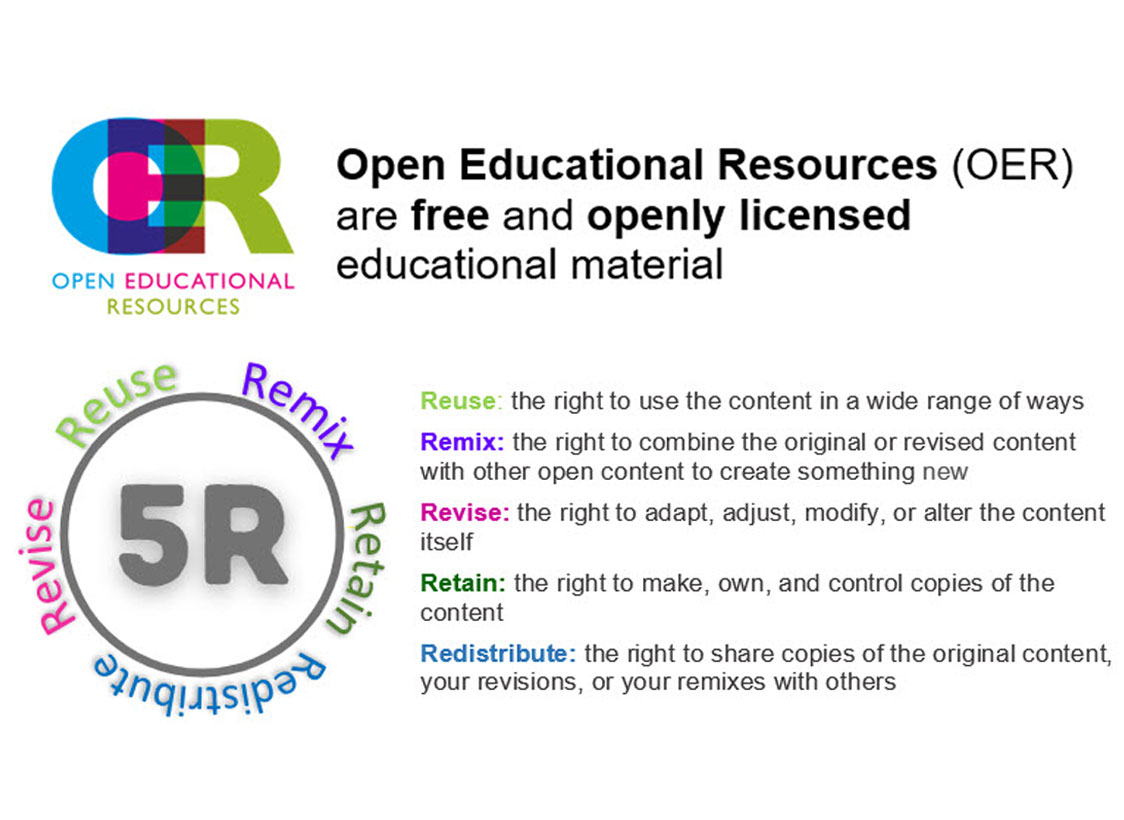
Academic Affairs works to expand open educational resources at UHCL
UHCL is working to expand its use of open educational resources (OER) for faculty and students.
The COVID-19 pandemic generated greater discussion in higher education about open educational resources because of their potential to help students save money on textbook costs.
In a statement provided by Senior Vice President for Academic Affairs and Provost Stephen Berberich, the provost said his office is collaborating with multiple departments to expand the use of OER at UHCL.
Berberich cited Texas House Bill 3652 signed into law by Governor Greg Abbot Sept. 1. The bill created a customized OER web-based repository to provide Texas students of public and private higher education institutions access to OER materials of high quality.
Berberich listed the plans the collaborating offices are working on:
- Develop a definition for affordable/low cost textbooks
- Offer OER faculty community of practice for faculty to collaborate and move their courses towards OER or other low-cost materials
- Create a university award between the library and Center for Engagement, Teaching, and Learning for the faculty member doing the most with Open Educational Resources
- Discuss with Deans and Colleges including working with OER as a specific item on Annual Review and/or Promotion & Tenure documents
- Create a course release for faculty to find and/or develop OER materials for their classes
- Consult regional OER/low cost experts to incorporate best practices at UHCL
- Hold regular OER faculty workshops (and have at least one archived for faculty to use)
In addition to the recently signed bill, the Department of Education recently launched the Open Textbook Pilot program to create and expand OERs in higher education. The program offers grants for faculty who wish to integrate OER into their classrooms. Applications for the program opened on Sept. 15 and faculty can apply for the grant program on the library’s OER webpage.
The Neumann Library and the Center for Faculty Development are the primary departments responsible for advocating and managing the use of OER at UHCL.

Linsey Ford, scholarly communications services librarian, oversees the library’s handling of OER. The library provides access to OER repositories.
Robert Bartsch, director of the Center for Faculty Development, oversees OER development and overall use. Bartsch has also utilized open educational resources in courses he has taught.
Bartsch and Ford describe their mission as making OER more known to faculty and advocating for their usage in classrooms and curriculum.
“For the last few years, we have offered presentations to faculty to help make them more aware of what is available in terms of Open Educational Resources,” Ford said. “Last fall, we facilitated a panel discussion where faculty members who currently do use OER were able to share their experiences with other faculty.”
Ford said the library is currently working with the Center for Faculty Development to create a university award for faculty members utilizing OER.
“We plan to collaborate in any way we can to support the initiatives developed by the Provost’s office,” Ford said.
Both said one of the primary benefits of OER is their low cost compared to traditional textbooks.
“Another key benefit is how easily the content of OER textbooks and supplemental material can be adapted and modified by faculty to more seamlessly fit their courses,” Ford said. “Seldom do traditional textbooks line up exactly with course organization or objectives, but OER have more flexibility and can be tailored to meet the needs of the course because they’re openly licensed.”
Ford and Bartsch said one of the few downsides of OER is the time it takes to create OER and integrate them into preexisting courses.
“It is also sometimes the case that departments adopt books universally, so it can be difficult for faculty to make individual changes,” Ford said.
Bartsch said OER is most common for core classes rather than the upper-level classes UHCL has a long history of providing.
“More UHCL classes are junior, senior or master’s level and there is less OER material available for those classes,” Bartsch said. “This is one reason why UHCL does not have much OER at this time.”
Bartsch cited his own experience using OER in his classroom as one of the downsides.
“I know I used OER materials for one of my classes and although the students didn’t have to pay for it, the quality of the OER material was poor,” Bartsch said. “After the experience, I think the students would have been better served with a traditional textbook. If I did it again with OER material, I would have had to spend a large amount of time preparing or finding additional material for the class.”
Bartsch said if a faculty member teaches many different courses, it would take even longer to find and prepare all the material.
Ford spoke positively of the future of OER.
“I see OER increasing in popularity as faculty and students get more comfortable with online courses,” Ford said. “Professors are the ones who best know their course content and what will best support their course objectives, and they should make the decision as to whether they should utilize Open Educational Resources.”
Ford said OER might not always be the best option for every course and affirmed that there is not an OER option available for every course, emphasizing that is especially the case with upper-level courses.
“I am sure we can rely on our faculty to select what is most beneficial to their students in terms of supporting student learning outcomes designed for each course,” Ford said.
